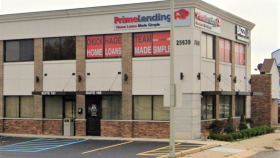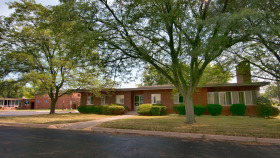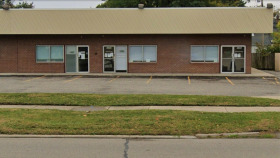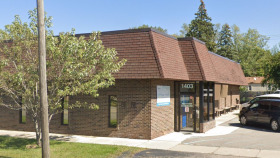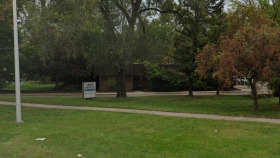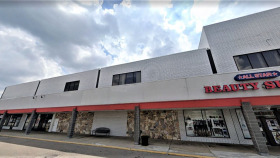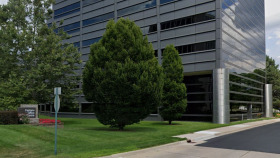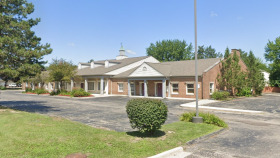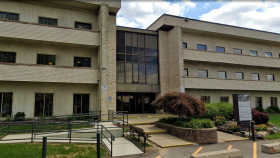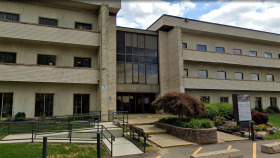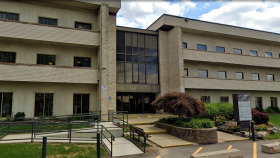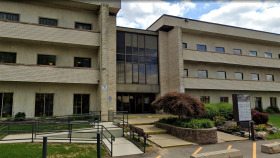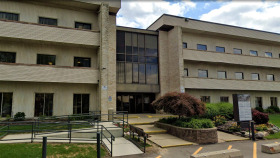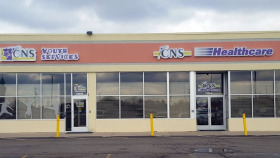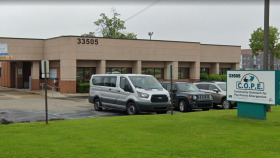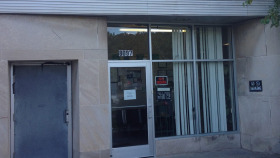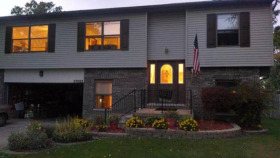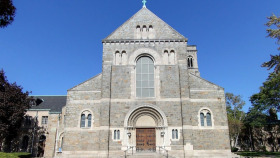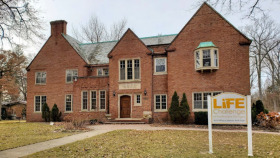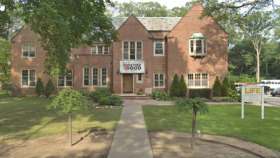Alcohol and Drug Use Statistics in Dearborn Heights, Michigan
Let’s take a closer look at the substance use statistics for Wayne County:2,3
Levels of Substance Abuse Care
There are several levels of care for addiction treatment. Some people enter treatment at one level, while others start with inpatient and make their way through the continuum of care.
Alcohol and Drug Detoxification
Detox is the process of safely and comfortably removing drugs or alcohol from your system. Performed under medical supervision in a hospital, residential, or outpatient setting, your withdrawal symptoms are comfortably managed, allowing you to transition into formal treatment services.
Inpatient Drug and Alcohol Rehab
Residential or inpatient treatment involves living at the rehab facility and receiving 24/7 care under supervision. A combination of treatment interventions are offered, including individual and group therapy, nutritional counseling, experiential therapies, and medication.
Partial Hospitalization Programs (PHPs)
PHPs allow you to live at home while attending treatment at a hospital. You may receive many of the same treatment modalities of inpatient care, with the difference being that you can return home during non-treatment hours. PHPs can be a bridge between inpatient and outpatient care.
Intensive Outpatient Programs (IOPs)
A step down from a PHP, IOPs allow you to attend a few hours of counseling over several days each week. You spend the rest of your time at home, working, or fulfilling other obligations.
Standard Outpatient
The least intensive treatment option, standard outpatient care involves one to two hours of treatment per week. This option has the least oversight and supervision. Highly motivated people with a strong support system tend to find this level beneficial.
Relapse Prevention
Relapse prevention, also known as aftercare, begins when a rehab program is complete. People receive forms of ongoing support and encouragement through 12-step groups, non-12-step groups like SMART Recovery, ongoing therapy, sober living homes, and more.
How to Pay for Substance Addiction Treatment in Dearborn Heights, Michigan
Private Insurance
By law, all insurance providers are required to cover substance abuse and mental health treatment services in some capacity. Call your provider to learn about your specific coverage, including your deductible and copay.
Michigan Medicaid
Michigan’s Medicaid program provides health insurance to low-income residents. It covers various treatment services like inpatient drug rehab and outpatient substance abuse treatment. Make sure to ask if the treatment center you’re interested in accepts Medicaid.
Michigan Medicare
Michigan Medicare is a government program providing coverage to residents with end-stage renal disease and those over the age of 65. You can use Medicare to cover the cost of drug addiction treatment services, including rehab.3 Some rehabs don’t accept Medicare insurance, so it’s important to do your research.
TRICARE in Michigan
Michigan TRICARE is a government program providing health insurance coverage to the U.S. Armed Forces military personnel, veterans, and their families and dependents. TRICARE covers addiction treatment services, such as rehab and medication-assisted treatment.
Sliding Scale Rehabs
Sliding scale rehabs are income-based, charging only what a resident can reasonably afford to pay. In order to qualify for a sliding scale rehab in Michigan, be prepared to provide proof of income.
IHS-Funded Drug Rehabs
Drug rehabs funded by the Indian Health Service provide free addiction treatment to Indigenous people in the U.S. and Alaskan Natives.
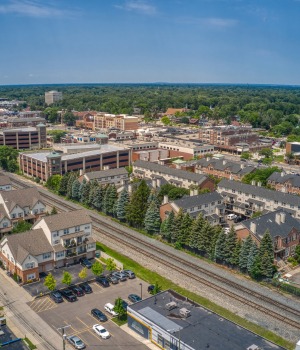
Getting to and Around Dearborn Heights, Michigan
If you or someone you care about is planning to enter into a drug or alcohol rehab in Dearborn Heights, you’ll want to get to know the area better to make getting around a bit easier.
Here are a few travel tips for your stay or visit:
- The closest major airport to Dearborn Heights is the Detroit Metropolitan Wayne County Airport at 15 miles away. The Windsor International Airport is also just 16 miles away.
- There are tons of places to stay—luxury hotels, moderately priced hotels, business-friendly hotels, cheap motels, Airbnbs, and even bed and breakfasts in and around Dearborn Heights.
- Regarding public transportation, Dearborn Heights is served by the SMART bus. There are also plenty of rideshares, including Uber, Lyft, private car services, and rental car services if needed.
- Dearborn Heights is home to many excellent attractions, including the Henry Ford Museum of American Innovation, Greenfield Village, the Arab American National Museum, the Dearborn Historical Museum, the Automotive Hall of Fame, and much more. There are also several parks and trails you can visit if you’re planning outdoor activities.
- Dearborn Heights is a reasonably walkable place. Depending on where you stay, you’ll likely be able to run errands or get to shops and restaurants on foot. However, you may need to arrange for transportation if you’re staying across town or are planning several activities in one day.
Michigan Alcohol and Drug Laws
Michigan lawmakers and public health agencies enacted the following laws related to substance misuse and overdoses:1
Michigan Good Samaritan Overdose Law: This law encourages witnesses to call 911 when someone is experiencing an overdose and protects them from prosecution for minor drug-related charges.
Michigan Naloxone Access Law: Pharmacists in Michigan can dispense Narcan (naloxone) without a prescription, increasing access to this life-saving opioid overdose reversal medication.
Michigan Driving or Operating Under the Influence Laws: A first offense of driving or operating under the influence of alcohol or liquor (OUIL) or drugs (OUID) results in a fine up to $500, imprisonment up to 93 days, and/or driver’s license suspension for up to two years.4 Additional offenses can lead to imprisonment of up to five years and driver’s license revocation for up to five years.
Michigan Regulation and Taxation of Marijuana Act: In 2018, the Michigan Regulation and Taxation of Marijuana Act legalized recreational marijuana for adults over the age of 21. Michigan state law specifies all use of cannabis must be done in private; it is illegal to use cannabis in a public space. It is also illegal to carry cannabis in areas frequented by children, such as schools or school buses.
Resources
- Wayne County Health Department. (2022, 15 July). 2021 Overdose Death Summary Report.
- Michigan Department of Health and Human Services. (n.d.). Alcohol-Induced Crude Mortality Rates, 1980-2020.

